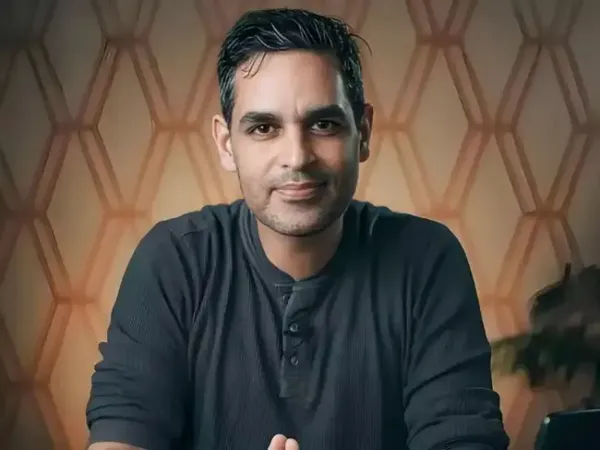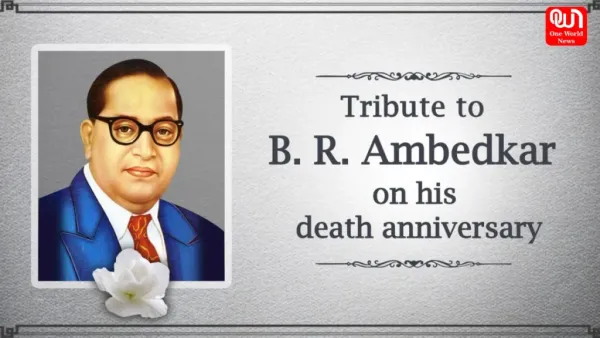Ankur Warikoo has been openly challenging the way we think about money, and his latest post pushes that boundary even further. After recently revealing his driver’s salary, he has now explained why he believes money should never be treated as personal and why salary secrecy keeps workplaces stuck in confusion and insecurity. His take on transparency is stirring a bigger conversation about how companies decide pay and why most employees are told to stay silent.
Ankur Warikoo took to X and said he found acceptance in the world of personal finance because he never kept money hidden. He shared his business income, investments, performance, salary, and even his mistakes with complete transparency. For him, this wasn’t about impressing anyone. It was about showing the clarity that comes when people stop hiding their financial reality.
He argued that the idea of treating money as private comes from institutions that benefit from secrecy. According to him, salaries are the biggest example. He said companies spend unnecessary effort keeping salary details confidential, even though most people already know them informally. The secrecy, he explained, hides how arbitrary salary decisions often are. He pointed out how a random 30 per cent hike at a rival firm often leads to a 30 per cent counteroffer, followed by a warning not to reveal the number to anyone. He called this not confidentiality, but a lack of a proper system disguised as policy.
Warikoo said he chose not to follow this approach at his own startup. Every salary in his company is public, not as a moral stand but as a way to bring structure and fairness. He explained how his hiring works: no candidate is asked to take a pay cut, previous salary is never discussed, only expectations matter, and roles are benchmarked transparently. If the expectations don’t match the company’s range, the offer is withdrawn respectfully. If they do align, the candidate is told exactly how the number was decided.
For Warikoo, transparency is a systems choice, not a virtue signal. He said that secrecy feels convenient only when the foundation is weak, and that strong systems make secrecy unnecessary. His post has sparked a larger debate online about whether workplaces should finally move toward open salaries instead of hiding behind outdated confidentiality rules.
Internet reacts
Many users reacted strongly to Ankur Warikoo’s stance on money transparency. One pointed out that in India, income is tied to respect, so people stay silent to avoid judgment. Another said transparency only feels risky when systems are weak, and strong foundations make openness a path to clarity. Several noted that secrecy often protects broken structures, while transparency forces discipline in both companies and individuals.
A popular take argued that most people don’t have money problems; they have secrecy problems. The moment someone puts their real income, losses, and mistakes on the table, ego drops and honest behaviour begins. Salary transparency, they felt, exposes what companies truly value — the overpaid favourite, the underpaid workhorse and the arbitrary hikes. Many praised Warikoo’s approach of open salaries, clear benchmarks and expectation-based hiring as a blueprint for a healthier financial culture.
Ankur Warikoo took to X and said he found acceptance in the world of personal finance because he never kept money hidden. He shared his business income, investments, performance, salary, and even his mistakes with complete transparency. For him, this wasn’t about impressing anyone. It was about showing the clarity that comes when people stop hiding their financial reality.
He argued that the idea of treating money as private comes from institutions that benefit from secrecy. According to him, salaries are the biggest example. He said companies spend unnecessary effort keeping salary details confidential, even though most people already know them informally. The secrecy, he explained, hides how arbitrary salary decisions often are. He pointed out how a random 30 per cent hike at a rival firm often leads to a 30 per cent counteroffer, followed by a warning not to reveal the number to anyone. He called this not confidentiality, but a lack of a proper system disguised as policy.
Warikoo said he chose not to follow this approach at his own startup. Every salary in his company is public, not as a moral stand but as a way to bring structure and fairness. He explained how his hiring works: no candidate is asked to take a pay cut, previous salary is never discussed, only expectations matter, and roles are benchmarked transparently. If the expectations don’t match the company’s range, the offer is withdrawn respectfully. If they do align, the candidate is told exactly how the number was decided.
For Warikoo, transparency is a systems choice, not a virtue signal. He said that secrecy feels convenient only when the foundation is weak, and that strong systems make secrecy unnecessary. His post has sparked a larger debate online about whether workplaces should finally move toward open salaries instead of hiding behind outdated confidentiality rules.
Internet reacts
Many users reacted strongly to Ankur Warikoo’s stance on money transparency. One pointed out that in India, income is tied to respect, so people stay silent to avoid judgment. Another said transparency only feels risky when systems are weak, and strong foundations make openness a path to clarity. Several noted that secrecy often protects broken structures, while transparency forces discipline in both companies and individuals.A popular take argued that most people don’t have money problems; they have secrecy problems. The moment someone puts their real income, losses, and mistakes on the table, ego drops and honest behaviour begins. Salary transparency, they felt, exposes what companies truly value — the overpaid favourite, the underpaid workhorse and the arbitrary hikes. Many praised Warikoo’s approach of open salaries, clear benchmarks and expectation-based hiring as a blueprint for a healthier financial culture.





